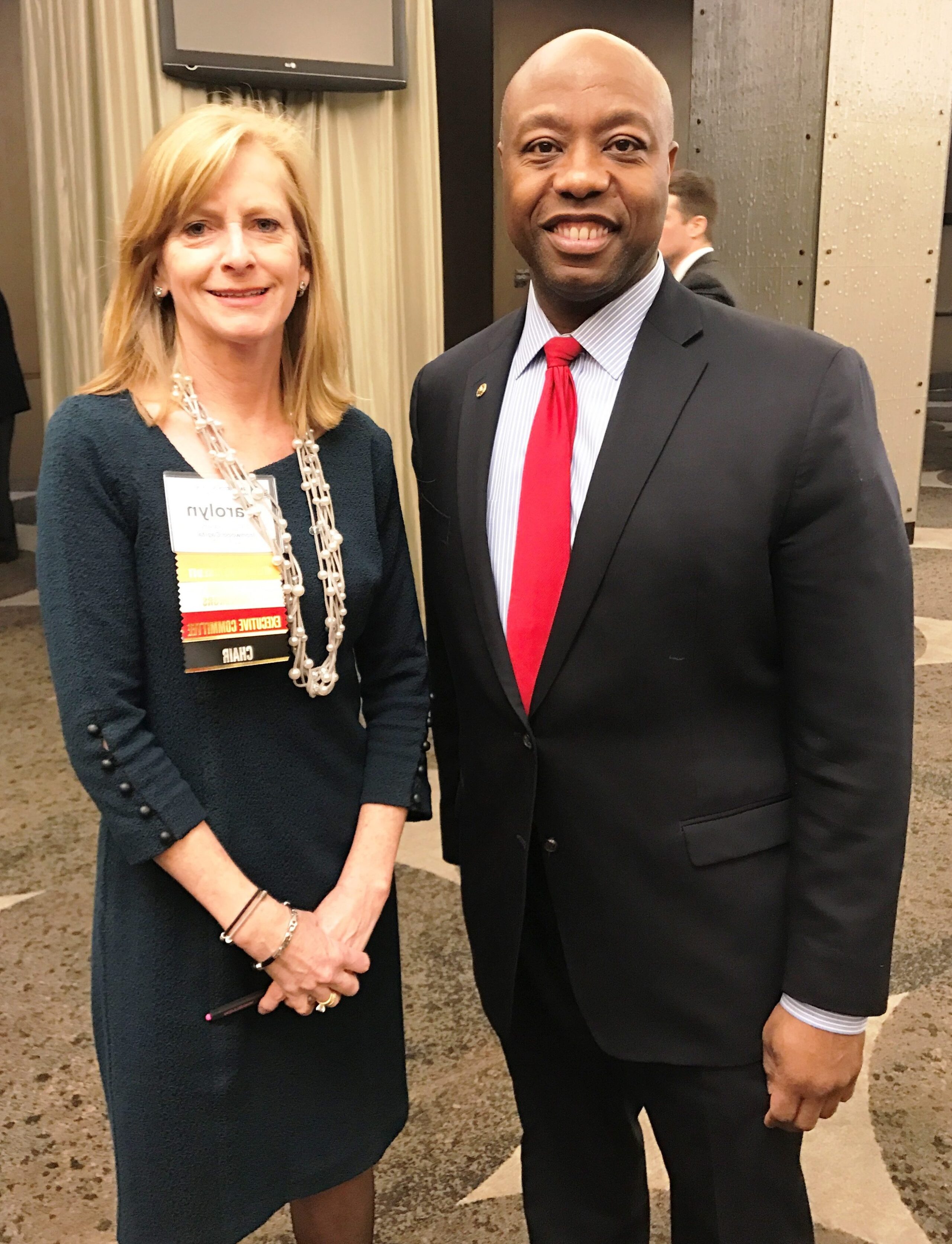03/15/2018 | Ironwood Insight
Telling the Small Business Story in Washington D.C.
I was honored to be in Washington D.C. on March 13 to meet with Congressional leadership, including Senator Tim Scott of South Carolina and the staff of Connecticut’s own Senator Chris Murphy. The meetings were arranged by the Small Business Investors Alliance (SBIA), which I chair. The purpose of the event was for SBIA members and investors to share ways the Small Business Investment Company (SBIC) program, administered by the U.S. Small Business Administration (SBA) has helped grow jobs and create opportunities for small business owners, especially in distressed urban and rural areas. It was great to meet with the elected officials as well as the staff who make the Capitol run day-in and day-out. I was happy to share the SBIC story, since SBIC member activity is so important to small businesses in the United States.

At the office of Connecticut Senator Chris Murphy. Carolyn Galiette, second from left, with other SBIA members as well as the staff of Sen. Murphy, on March 13. Present from left: Steven Pickhardt, GarMark Advisors; Carolyn Galiette, Ironwood Capital; Cynthia Pullom, Counsel for U.S. Senator Chris Murphy; Marilyn Adler, Medley; Carrie DiLauro, Hamilton Robinson Capital Partners; and Walter Barandiaran, Argentum Capital. The meeting was organized by the SBIA.
The role of the SBIA
The Small Business Investor Alliance is the premier organization of lower middle market private equity funds and investors. SBIA works on behalf of its members as an advocate for policies that promote competitive markets and robust domestic investment for growing small businesses. SBIA has played a pivotal role in the growth and vitality of small businesses for over 50 years. On Capitol Hill, the SBIA’s legislative team advocates for lower middle market funds, monitoring the legislative and regulatory environment. In addition, it facilitates members’ communications with policy makers, allowing them to tell the real story of private equity, its positive impact on small businesses, job creation and innovation.
The role of SBIA members
My firm, Ironwood Capital, has been an SBIA member for many years. We are a Connecticut-based private equity firm that provides non-control growth capital to established lower middle market companies. Since our first fund in 2001, our various funds have invested approximately $750 million in 130 companies.

Carolyn Galiette and Sen. Tim Scott of South Carolina, meet at the SBIA Fly-In at the Capitol.
We help companies succeed by providing growth and transition capital coupled with strategic, operational and financial guidance. We believe that active investor participation is important to successful decision making and frequently take board seats and provide our insight and resources as appropriate to our portfolio company management teams. We take a long term approach to value creation, targeting a typical holding period of five years, sometimes longer, allowing portfolio companies sufficient time to execute on their objectives.
I am very proud of what we do at Ironwood and of our affiliation with the SBIC program. The structure of the SBIC program is unique in that SBICs are privately owned and managed investment funds, licensed and regulated by SBA, that use their own capital to make equity and debt investments in qualifying small businesses. In addition, many SBICs borrow funds from SBA to increase their investment capital and the number of investments they can make.
Since the inception of our first fund, we have sought to invest half of our capital in businesses owned or managed by women and minorities, businesses located in low- and moderate-income communities and businesses that pursue environmentally responsible outcomes. This investment strategy generates opportunities in small businesses that typically have less access to capital than larger, more established companies. Importantly, this strategy has been implemented without any compromise or diminution in the firm’s underwriting standards or in the performance of the funds. As a result, these investments build sustainable wealth in underserved communities while generating returns for these businesses as well as for our limited partners – a win-win for all involved.
